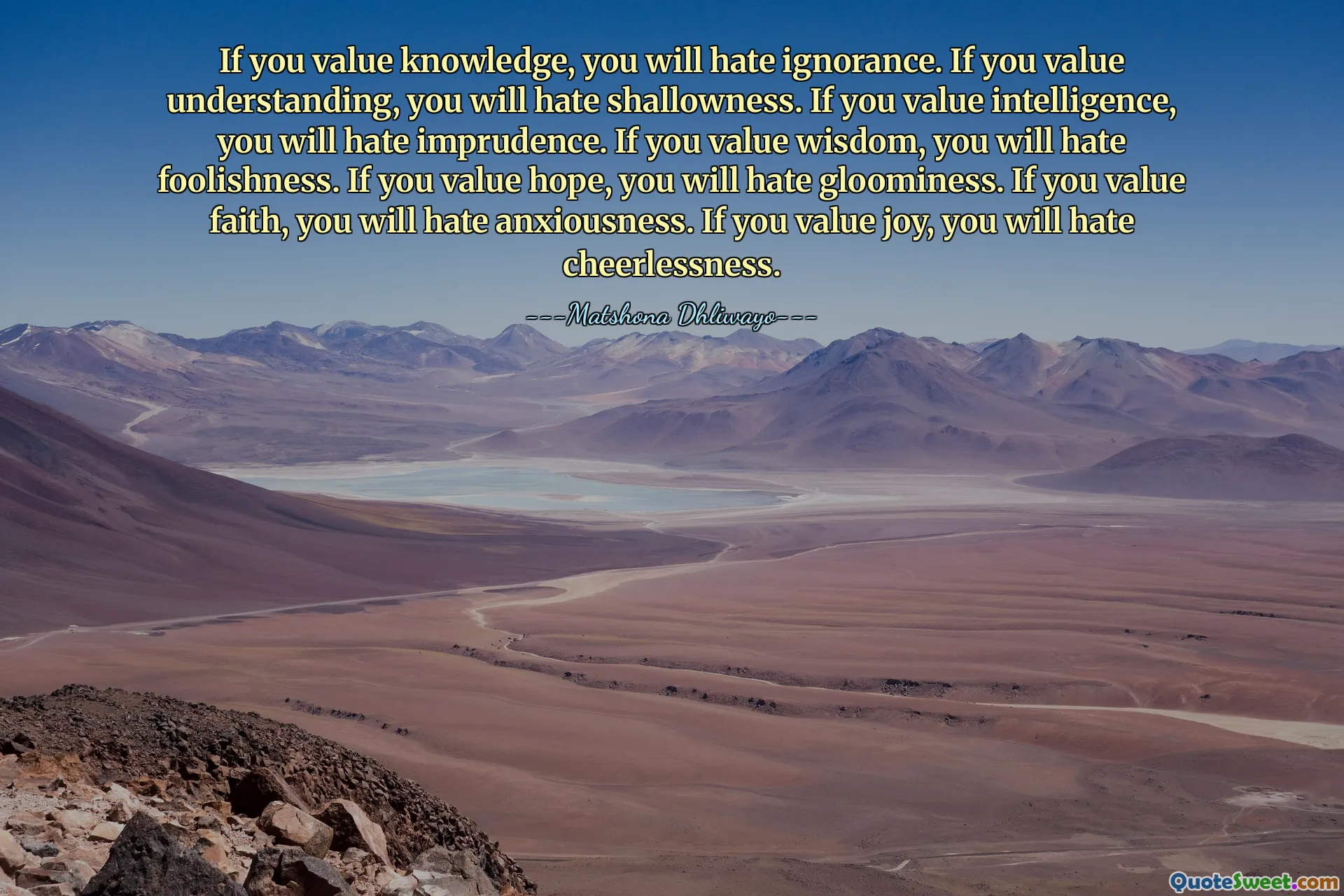
If you value knowledge, you will hate ignorance. If you value understanding, you will hate shallowness. If you value intelligence, you will hate imprudence. If you value wisdom, you will hate foolishness. If you value hope, you will hate gloominess. If you value faith, you will hate anxiousness. If you value joy, you will hate cheerlessness.
The quote emphasizes the importance of aligning one's values with corresponding attitudes and behaviors. Essentially, it suggests that what we cherish in life directly influences our perceptions of what we should avoid. For example, if knowledge is a value we hold dear, then becoming intolerant or dismissive of ignorance aligns with that value. Similarly, appreciating understanding naturally entails disfavor for shallowness, which lacks depth. This idea can serve as a guiding principle in personal development; by clearly identifying what we value most, we can consciously cultivate attitudes that promote growth and harmony. It also encourages self-awareness—being mindful of whether our actions and judgments reflect our core beliefs.
The broader implication of this message is that our priorities shape our worldview and influence our choices and reactions. When we prioritize wisdom, we are more likely to avoid foolishness, making decisions rooted in experience and prudence. A person who values hope will strive to foster positive perspectives rather than succumb to gloom. Similarly, valuing faith should inspire confidence rather than anxiety, and valuing joy should motivate us to seek happiness instead of cheerlessness.
This quote challenges us to reflect on what truly matters to us. It advocates for values-based living, where aligning our attitudes with our core principles leads to a more fulfilling and authentic life. By consciously cultivating positive traits linked to our values, we can not only improve ourselves but also positively influence those around us. It reminds us that intentions behind our feelings and judgments matter, and choosing to uphold our values can significantly impact our personal growth and relationships.











